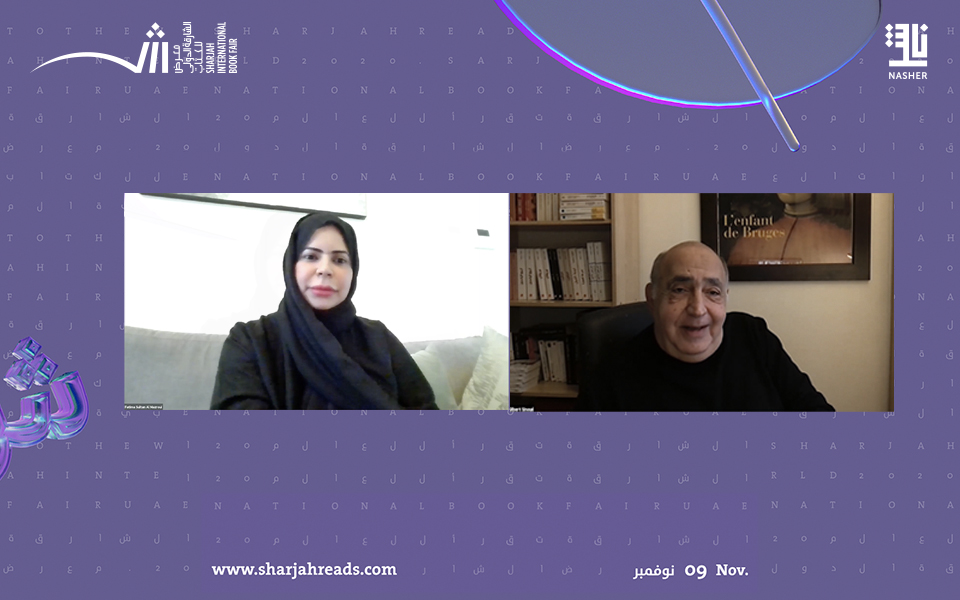How much literary freedom can writers of historical fiction exercise while presenting their perception of events from history in their novels? This was the subject of a virtual session titled ‘Writing Historical Novels’, hosted at the ongoing 39th edition of the Sharjah International Book Fair (SIBF).
Emirati novelist Fatima Al Mazrouei, and French historian Gilbert Sinoué, shed light on this and several related issues at the session moderated by Safia Al Shehi. Both participants agreed that authors are amply challenged in reinterpreting historical events and personalities in works of fiction. They have to think of innovative and creative solutions to avoid misrepresenting events or distorting facts while penning a historical novel.
Fatima Al Mazrouei stressed that many people confuse writers of historical fiction with historians. She noted that historians record historical events after verifying established facts through reliable sources and documents. On the other hand, writers of historical fiction weave historical facts into a compelling narrative based on their own perceptions, depending on the plot, setting and characters.
“Authors must ensure that established facts and events are not distorted,” she remarked, adding: “they should investigate and research the historical facts the book is based on, ensuring there are no mistakes or distortion of the events described.”
The Emirati novelist further said that an author of a work of fiction can let loose their imagination, unlike the writers of historical fiction who cannot play fast and loose with historical facts. She pointed out that while readers in general are attracted to historical fiction, most authors avoid writing historical novels because of the restrictions of the genre.
For his part, Gilbert Sinoué reiterated that the difficulty in writing historical novels stemmed from the fact that it entailed striking a balance between documented history and the author’s perception of it. He also noted that the amount of research involved can overwhelm the author, and that can reflect on the authenticity of the work.
Sinoué emphasised that authors had the freedom to put words into the mouth of historical characters as long as they stayed true to the nature of their persona.
Speaking about what led him to write about the life of the Father of the Nation, late Sheikh Zayed bin Sultan Al Nahyan, Sinoué said he had learned about Sheikh Zayed when visited the UAE 15 years ago as the guest of honour at Abu Dhabi International Book Fair. Back in France, he started researching about the UAE and Sheikh Zayed. He ended up writing Le Faucon (The Falcon), a novel in which the story is narrated by Sheikh Zayed.
The historical novelist highlighted the significance of objectivity and neutrality in writing. “Writers should not project their personal views in a novel based on historical facts, especially if they are biographies. Both historical novelists and historians can ask the eternal question ‘why’. Why did that happen? Why did he/she say that? That can be the beginning of a dialogue with the reader.”







